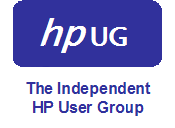

|
The HP User Groupin partnership withDennis Adams Associates Limited"Managing Production Systems: Fire-Fighting and MOPS" |
Date: Thursday 26 January 2006 Time: 09:30 (all day seminar) Topic: IT Systems Management. Location: HP, London External Link: HP User Group Events Schedule
PowerPoint Presentations (Powerpoint 2003) Challenges of Managing IT Production: Then and Now
hpug200601-1.ppt - 1.8 MB.Metrics and Operational Tools
hpug200601-2.ppt - 1.2 MB.Processes, Procedures and Standards
hpug200601-3.ppt - 1.9 MB.Creating and Implementing a Production Strategy
hpug200601-4.ppt - 1.6 MB.Presentation Handouts (PDF format) Challenges of Managing IT Production: Then and Now
hpug200601-1.pdf - 7.1 MB.Metrics and Operational Tools
hpug200601-2.pdf - 2.7 MB.Processes, Procedures and Standards
hpug200601-3.pdf - 6.3 MB.Creating and Implementing a Production Strategy
hpug200601-4.pdf - 2.9 MB.Seminar Description:
The last 20 years have seen massive advances in the technology that is deployed in our data centres.
Despite this, many of the same pressures of managing Production IT systems still remain; - increasing end-user support demands, tighter deadlines for deployment and delivery of systems, reductions in support staff and budgets.
Faced with these pressures, IT staff can often be forced to resort to reactive "fire-fighting", rather than managing Production in a pro-active, strategic way.
In this seminar, Dennis Adams will present his personal approach to IT Production Management, based on his experience firstly as a Systems Manager and DBA, then helping to deliver solutions using Software tools, managing a Production Strategy and Architecture team, and latterly providing a Consultancy Service to IT Production Managers.
The key techniques for making your IT production more pro-active and strategic could be summarised by the acronym "MOPS";
- Metrics: identify and collect some key statistics to understand what is happening to your systems technically (CPU etc.), and where your support activity is going (time spent), Incorporate these into a pragmatic capacity planning function.
- Operational Tools: review what tools you have for collecting technical and activity metrics. Define a single referential for all data. Automate, Integrate and Summarise.
- Processes and Procedures: don't overload your teams with procedure, but use a pragmatic common-sense approach to deploy processes based on ITIL. Ensure you interface with Development Projects at the earliest possible phase.
- Standards: Create a "menu" of standard technologies that developers must adhere to. Put in place a systematic policy of technology upgrade, to ensure that costly systems are decommissioned when new ones are deployed.
Finally, the seminar looks at ways to measure the "value-add" of Production, and to better justify the IT Infrastructure budgets.
The seminar will draw on many different technologies, from many different eras, with insights and experience borrowed from many processes, techniques and industry figures.
Target Audience:
IT Managers and their staff with responsibility for Operational mid-range systems
Speaker:
Dennis Adams started his IT career in 1984, where he worked as a VMS Systems Manager for Arbuthnot Commercial Services, became a member of DECUS (now part of the HPUG), and helped deploy one of the early VMS clusters in the UK.
Subsequently, during his time working for Empire Paper Mill he began to develop a systematic approach to systems management.
For a while, he was UK Business Manager of Common Sense Computing (now part of Quest Software), where he was responsible for selling tools for monitoring and management of databases, before he joined BNP Paribas as a DBA with responsibility for pro-active performance monitoring.
Whilst at BNP Paribas, he was responsible for creating and managing the IT Production Strategy and Architecture team, and helped define Global IT Standards.
After a period working on processes and procedures, he left BNP Paribas in 2004 and started work as a freelance consultant on IT Production Management.
During the last 21 years Dennis has worked on VMS, TRU64, Windows NT, Windows 2003, HP-UX and Linux technologies, but has never forgotten his first VAX.
Agenda
09:30 Registration 09:55 Welcome 10:00 The challenges of managing IT Production: Then and now 10:30 The "MOPS" strategic approach. 11:00 Refreshment Break 11:15 Metrics and Operational Tools 12:30 Lunch 13:15 Processes, Procedures and Standards 14:15 Refreshment Break 14:30 Creating and implementing a Production Strategy. 15:30 Open Forum. 16:00 Seminar Ends For further Details:
Contract the HP User Group for details of location and Registration Fees. Further details can also be found on The HP User Group Website.
Back to Events List
![[presentation]](graphics/ppt.jpg)
![[acrobat file]](graphics/pdf.jpg)